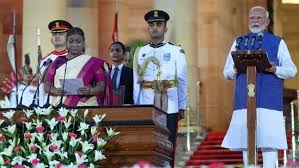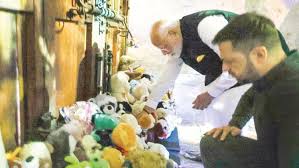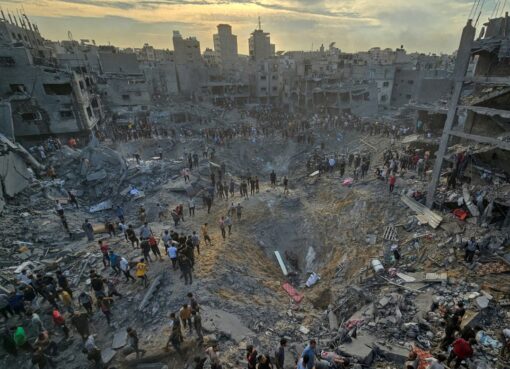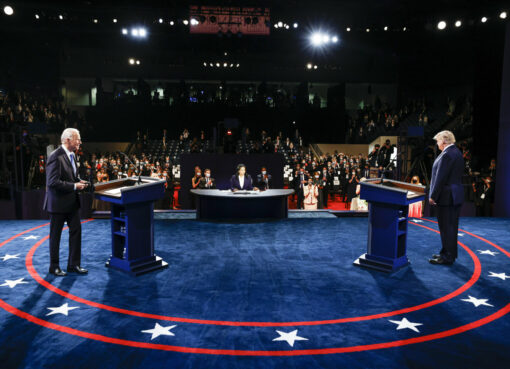Prime Minister Modi’s hands are full as he got his last opportunity to prove his mettle and leave a lasting legacy
by Prasad Nallapati *
As Prime Minister Modi was reelected much chastised, many of his policies and strategies – that he had proudly claimed credit for – are showing serious chinks that need urgent attention before they overwhelm his third term.
Internal security strategy is particularly very shaky.
From Punjab, Jammu and Kashmir to Manipur, there are signals of serious eruptions that may go out of hand if timely counter measures are not taken.
Jammu and Kashmir Awaits Revival of Statehood
Even as Modi is taking oath for the third time, Kashmiri terrorists struck a major blow attacking a bus of Hindu pilgrims in Reasi in Jammu sector killing 10 of them and injuring several others. The last such terror attack in the region was two years ago when terrorists targeted a bus carrying Vaishno Devi pilgrims.
There has been an uneasy silence in Jammu and Kashmir since the revocation of Article 370 of the constitution, taking away its special status. It lost its statehood. Political activity had been kept in abeyance with severe restrictions on regional leaders.
With security situation appearing to have improved, the Modi government has promised to revive the statehood and hold Assembly elections there soon.
The Parliamentary elections have, meanwhile, thrown up new challenges.
Omar Abdullah, leader of the National Conference, was trounced by a jailed separatist Sheikh
Abdul Rashid, popularly known as “Engineer Rashid”, by over two hundred thousand votes in the just concluded parliamentary election from Baramullah seat.
Modi 3.0 will have to take more conciliatory measures coopting moderate nationalist parties. Reviving the statehood and holding early Assembly elections, as promised, will likely bring new vitality to the border region.
Political Wrangling Weakens Punjab Polity
Two supporters of the Khalistani separatist movement have won parliamentary polls from Punjab by large margins. They are Sarabjeet Singh, son of the assassin of the former Prime Minister Indira Gandhi and jailed Amritpal Singh who sees himself a “worthy” successor of notorious terrorist, Bhindranwale, who was killed in a 1984 army action.
Both of them campaigned on more innocuous issues of drug trafficking and development, but their underpinning motif is too obvious to ignore. Though their success didn’t represent support to Khalistani ideology, their clever use of local grievances to ride to victory does not augur well.
Competing narratives among BJP and AAP accusing each other of backing separatist elements vitiated already volatile political atmosphere. The Shiromani Akali Dal party, having lost much of its erstwhile political base, has adopted a more hardline stance stirring up extremist forces.
India’s alleged murder or attempt to murder of Khalistani activists in Canada, US and other western countries has put the country on defense giving added publicity to these separatist forces abroad.
Manipur – A Case of Mishandling of Ethnic Violence
Chief Minister Biren Singh has narrowly escaped an attempt on his life even as his advance security convoy came under an ambush, hours after Modi 3.0 taking reigns.
Manipur has been on boil for a long time with no end to raging ethnic violence. Disturbed conditions in neighboring Myanmar has unleashed anti-India militant groups that are adding fuel to already volatile situation in the state.
Christian groups abroad have been depicting the ethnic violence as suppression of minorities by Modi’s `Hindutva’ forces.
Measures taken so far have proved inadequate and new political initiatives are needed to deal with the grievances which are more of administrative in nature.
Prime Minister Modi’s hands are thus full as he got his last opportunity to prove his mettle and leave a lasting legacy.
(*Prasad Nallapati is President of the Hyderabad-based think-tank, “Deccan Council for Strategic Studies and former Additional Secretary to the Govt of India)




